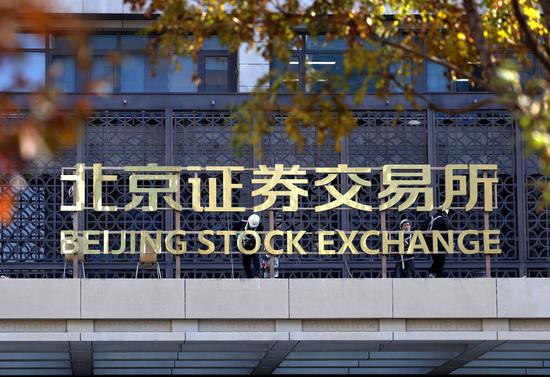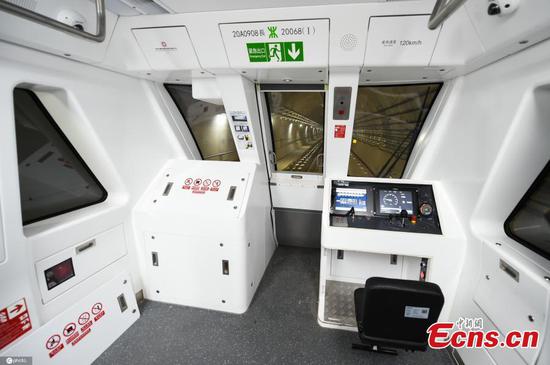SAR must act fast to gain lost ground in its bid to be a financial technology center by taking strategic steps, such as developing a global cross-border payments system, write Christopher S. Tang and Gerry Tsoukalas.
Hong Kong should be a leading global financial technology hub, given its locational and connectivity advantages, but it's not, at least not now.
According to a study conducted by KPMG in 2019, no Hong Kong fintech service firms made it onto the top 10 list. However, Singapore's Grab and the Chinese mainland's Ant Financial, JD Digits and Du Xiaoman Financial are among the top 10 fintech firms in the world in terms of the number of digital payments and transactions. To become a global fintech leader, Hong Kong needs to leverage its existing pedigree in financial services to develop a cross-border payment system and further embrace blockchain-based financial innovation.
The special administrative region has many strategic advantages that can propel the development and adoption of fintech services. It ranks among the top 10 global financial centers with the highest consumer fintech adoption rates in the world, and it has a high business-to-business adoption rate of fintech, with 66 percent of fintech companies in the B2B market. In addition to Hong Kong's homegrown virtual WeLab bank, eight new virtual banking services were launched last year.
Despite these advantages, Hong Kong faces stiff competition from Singapore. Recognizing that fintech is a key strategic growth area that Singapore can lead in Southeast Asia, the island's government encouraged the development of fintech services by offering tax incentives, allowing looser regulatory requirements, and providing more "hands-on" government assistance. To support Singapore's "innovation hub" agenda, the Singapore Monetary Authority is encouraging the establishment of more fintech firms.
Besides the Lion City, Hong Kong is falling behind the mainland in terms of digital payments pioneered by Chinese tech giants, such as Alibaba and Tencent. Different from Hong Kong that has a well-established financial service system, the mainland leapfrogged the traditional credit-card system in favor of mobile, with an estimated 852 million mobile payment users last year. Research firm eMarketer expects nearly 80 percent of Chinese smartphone users to use their devices for payments by the end of this year. When it comes to pitching fintech products, it helps to have a user base that's experienced with similar technologies.
In 2016, almost 90 percent of fintech investments in the Asia-Pacific went to the mainland. Yet the Hong Kong Monetary Authority was still in a "wait-and-see" mode, mulling how (and even whether) to support the city's fintech industry. As a latecomer, what can Hong Kong do to gain some lost ground in the fintech sector?
The fintech race is far from over, and Hong Kong has a window of opportunity to take the lead by making two strategic moves.
First, the SAR has to leverage its existing regulatory framework to take a leading role in the development of a global cross-border payment system. The mainland government has taken a rather nuanced regulatory stance, promoting the development of blockchain technology, but clamping down on digital currencies built on top of it. In May, the mainland banned crypto exchanges and said financial institutions can no longer offer crypto services to clients. While the SAR government cites consumer protection concerns as the rationale, there may be other reasons behind this, including the mainland's efforts to launch its own central bank digital currency — a digital version of the yuan.
This is an opportune time for Hong Kong to play a critical role in facilitating cross-border payments by leveraging the digital yuan. Hong Kong is already one of the main testing grounds for digital-yuan cross-border payments. The city's Financial Services and the Treasury Bureau is also showing a little more open-mindedness beyond the digital yuan. Although it recently banned crypto trading for retail customers, it still allows licensed crypto exchanges to operate and market their products to professional investors — those with more than $1 million in investible assets.
Second, Hong Kong should explore the strategic value of decentralized finance — a blockchain-based form of financial services that relies on automated smart contracts, bypassing the need for central financial intermediaries, such as brokerages, exchanges and banks. Decentralized finance has the potential to significantly disrupt traditional financial infrastructure, touting innovations like "automated market makers", which bypass traditional centralized exchanges. The self-proclaimed mission of this booming industry is to take power (and fees) away from financial intermediaries and put it back into the hands of retail, making the entire process more time-efficient, cost-effective and transparent.
Despite growing competition from Singapore and the mainland, Hong Kong has the capability to lead in the fintech sector. It's certainly a positive first step for the SAR government to provide funding of over $51 billion to support the fintech industry. But to compete with Singapore and the mainland, Hong Kong must find ways to introduce progressive legislation, particularly in the crypto space, with a renewed sense of urgency.
Christopher S. Tang is a distinguished professor at the University of California, Los Angeles. Gerry Tsoukalas is an associate professor at Boston University Questrom School of Business, and a fellow of the Luohan Academy.
The views do not necessarily reflect those of China Daily.


















































 京公网安备 11010202009201号
京公网安备 11010202009201号